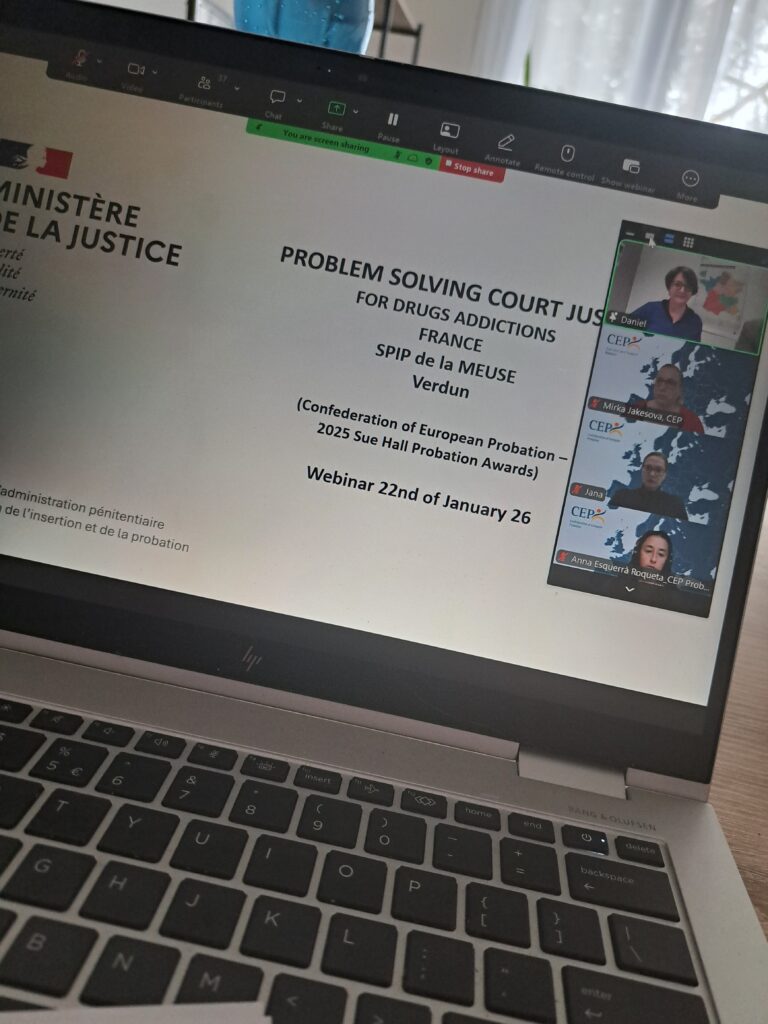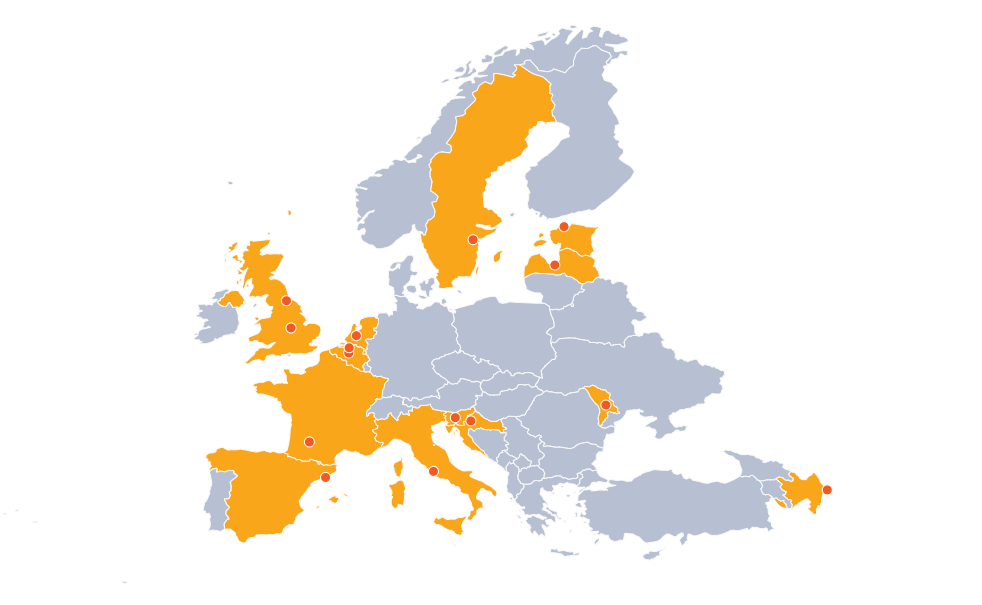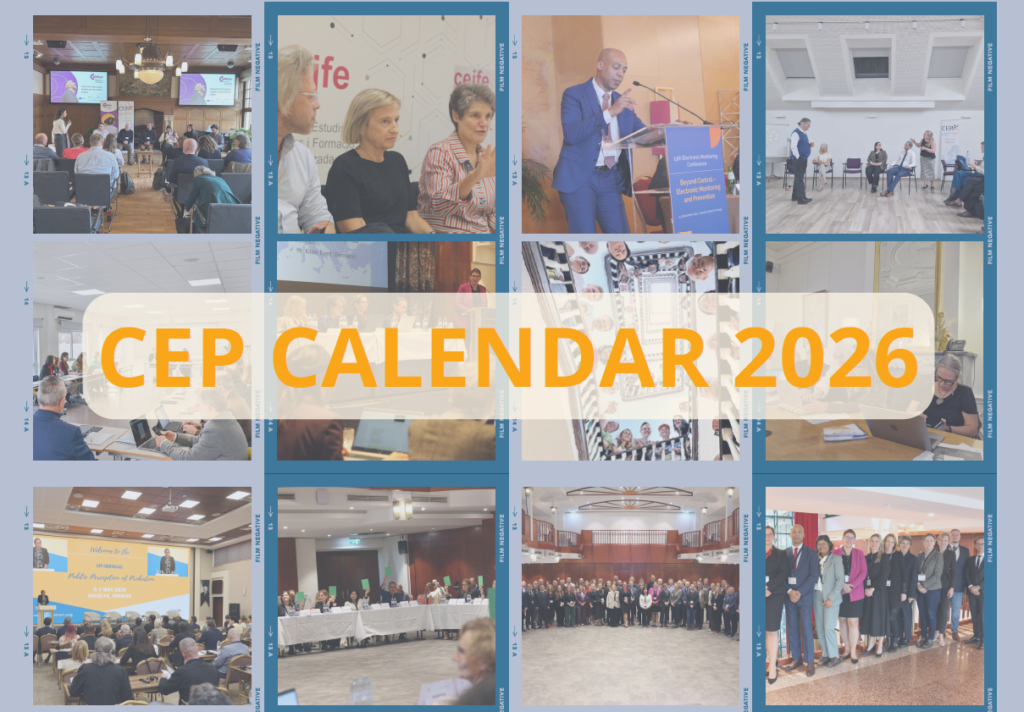Previous Article
News
Recap: Conference ‘Resettling Adult Offenders’, Glasgow
Which title would you give a conference that is about desistance and inclusion in the community of offenders? Something like “The essential success factors in probation” may be obvious, but the organisers of the CEP conference held in Glasgow on the 25th and 26th of April 2008 chose for the more modest ‘Resettling Adult Offenders”. More than ninety participants from sixteen countries attended this important conference. “I think that one of the lesson learned is that our service-led way of thinking about reintegration should be challenged; we need to start with how offenders experience change”, suggests Fergus McNeill, Senior Lecturer in the Glasgow School of Social Work and one of the organisers of the conference.
In the conference programme, Fergus McNeill took up the task of do the summing up of the conference. “The general purpose of the conference was to broaden the participants’ horizon on how to overcome problems in the resettlement of offenders. I think that that goal has been achieved. Many of the elements which contribute to successful resettlement were discussed at the conference. Moreover, the conference was an opportunity to engage with delegates from a broad range of countries and develop an appreciation of how in each country the problems of resettlement are being tackled. It was interesting to learn that despite all the different social, cultural and juridical contexts there are common problems that probation services in every country encounter when trying to resettle ex-criminals successfully. And every service is producing slightly different ways of resolving those problems.”
Although many good practice ideas were exchanged, almost every speaker at the conference recognized the limitations of working only to change the offender. Fergus McNeill: “The ‘What Works approach” which has been developed in many jurisdictions is principally about making offenders better at thinking and solving problems themselves. Everybody at the conference recognized the importance of that task and the importance of doing rehabilitative work and programs. In the UK, in the last fifteen years we have been preoccupied with making the programs and systems evidence based. That is good, but when it leads to shoehorning offenders into a set of programs and processes that we have designed not around individuals but around generalizations about needs and risks then things go wrong. Desistance research emphasises individual trajectories of change and suggests that successful resettlement is about individualized support. Therefore we need systems and practices that are more able to personalize the interventions in the process.”
With that conclusion, probation services all around Europe face an enormous intellectual and practical challenge. Fergus McNeill continues: “Its upsets or overturns our service-led way of thinking and compels us to have an offender centered way of thinking about reintegration. So the first question is not ‘what do we do’, but ‘what is the offender experiencing as an individual and what can we build around that to support them’. Such a change has of course serious cost and resource implications. The more we personalize and individualize our approaches, the more space we need to give to practitioners to adapt and develop and make each intervention distinctive. That is very labor-intensive and very time-intensive – and it requires highly skilled staff. Nevertheless, I think the common message at the conference was that this is a necessary part of successful resettlement. Resettlement also needs to look beyond the ex-prisoner to include work with the family, with employers and with communities; without employers and communities being supported to accept returning ex-offenders, the prospects for desistance will be much diminished. That means that there still is a lot of work to do. However, the positive news is that we are moving in the right way. It is going to be an exciting time in criminal justice.”
The report of the conference “Resettling Adult Offenders” is available here.

Related News
Keep up to date with the latest developments, stories, and updates on probation from across Europe and beyond. Find relevant news and insights shaping the field today.
New

Alternatives to pre-trial detention, Community Sanctions and Measures, Framework Decisions, Technology
Future of Criminal Justice: CEP’s Contribution to Key 2025 Dialogues
27/01/2026
Throughout 2025, CEP and its representatives actively participated in the online Technical meetings ahead of the HLF as well as the High Level Forum on Future of Criminal Justice taking place on 4-5 March 2025, 20-21 May 2025 and 1-2 October 2025 in Brussels, Belgium.
Recap

Alternatives to pre-trial detention
Recap: Webinar on Alternatives to Detention 2026
26/01/2026
On Thursday 22 January, CEP hosted the first webinar of 2025 on the topic of Alternatives to Detention. The session led by Ms. Marina Pajoni from the French Prison and Probation Service titled „Problem Solving Justice in Pracitce: The Meuse Probation Service´s Approach to Drug Addiction“ introduced an innovative programme developed by the Meuse Probation Service in close cooperation with the French Ministry of Justice.
New

Education and Training
CEP launches an interactive European map of probation education and training institution contacts
22/01/2026
The CEP is pleased to inform its members that a new dedicated section has been developed on the CEP website featuring an interactive map of Europe.
New

CEP Events
CEP activity calendar 2026
20/01/2026
As we begin the new year, we would like to thank all CEP members, partners, and participants for your continued engagement and valuable contributions. Your involvement plays an essential role in shaping CEP’s work and activities.
We are pleased to share the CEP calendar for 2026, which provides an overview of the events planned for the year ahead. We look forward to continuing our collaboration and welcoming you to upcoming CEP activities throughout the year.
Thank you for being part of the CEP community.
New

CEP members, Gender-based violence
Interventions Alliance’s Eden House Recognized as Outstanding
15/01/2026
CEP is delighted to share that Eden House, an Interventions Alliance residential service for women with high-risk or complex needs on probation, has been rated “Outstanding” overall by HM Inspectorate of Probation. In 2022, Eden House was honored with the CEP Public Protection Award. Our sincere congratulations to the team for this remarkable achievement.
New

Education and Training
The Judicial Training Dashboard
14/01/2026
The European Training Platform (ETP) is a search tool for justice professionals. You can find self-learning materials on a great variety of EU law practice areas and related topics, as well as links to training providers’ homepages and course catalogues.
Subscribe to our bi-monthly email newsletter!
"*" indicates required fields
- Keep up to date with important probation developments and insights.

